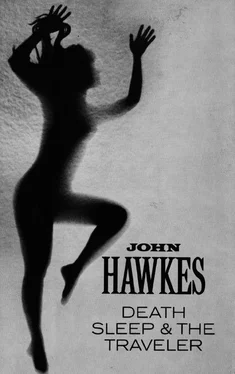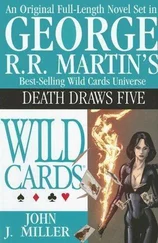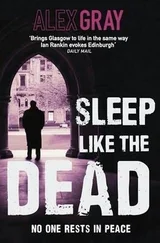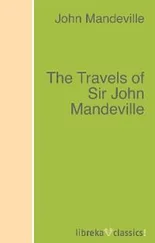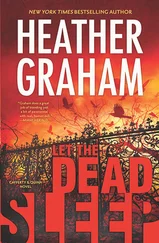“Couples rather than singles,” Ursula said at once in a quick voice that was amused but serious as well. “Western rather than Eastern, photographs rather than drawings, black and white rather than color, an occasional series of women without men. Contemporary narrative, but illustrated. As for animals and women,” she said then, smiling at Peter and capping her pen and removing Peter’s hand from inside the waistband of her slacks, and then standing and putting aside her finished letter and reaching for Peter’s warm hand, “in that situation Allert prefers dogs. Large, affectionate, but short-haired dogs.”
This remark caused the two of them to laugh, as Peter raised his arm and accepted Ursula’s proffered hand, though his eyes were still firmly closed, while in her own turn Ursula looked over her shoulder and gave me a glance that was both kindly, I thought, and vacant. Obviously Ursula was applying pressure to Peter’s hand and arm, while Peter, without exactly resisting that pressure, nonetheless remained in the same position he had been assuming all afternoon — head back, eyes closed, legs stretched before him and slightly spread. At this moment I found myself admiring his chocolate-colored trousers and yellow shirt, which were surely a match for Ursula’s beige-colored trousers and purple top. Ursula’s green plants, so fresh and pale in hue and intensely green, framed them in a miniature bower that was increasingly romantic in the deepening light.
“Dogs,” Peter said at last, as I myself leaned forward toward their group of two, “short-haired dogs. And the homosexuals? Have you no place for the homosexuals?”
“Allert,” Ursula replied at once, “is not interested in homosexuals. Unless they are women.”
“Which of course raises the question of whether or not we can put our faith in our taste. Perhaps taste is deceiving. Perhaps you have not given the partners of the same sex a fair chance.”
“In these matters,” came Ursula’s immediate reply, “Allert can be quite rigid.”
“So it is really true, my friend, that you think only of sex.”
“Of nothing else,” Ursula said quickly, laughing with curious gentleness in my direction, “of nothing else at all!”
“Oh, but you exaggerate,” I said then, interrupting their exclusive dialogue and returning Ursula’s teasing smile and noting the two empty pairs of buffed and glistening shoes on the white rug. “The truth is that I indulge myself only occasionally with my collection, which is an excellent one, if I may say. I would show it to you, Peter. Happily.”
It was not my invitation that prompted Peter to laugh, to open his eyes, to respond with vigor to the pull of Ursula’s strong hand, and to stand up at last and yawn, wipe his dark face with his free hand, and to stare down at me where I sat once more reclining and with the open volume tenting my belly, though he did these things at the very moment I spoke.
“But why, my friend, tell me why? What is this interest in the sexual concoctions of other people? Do they arouse you? Do they amuse you? But my friend, they are not even real.”
“Allert’s theory,” said Ursula in the long pause during which she and Peter stood looking down at me hand in hand and heads together, shoulders together, bare feet and stocking feet pushing aside the empty shoes, “Allert’s theory is that the ordinary man becomes an artist only in sex. In which case pornography is the true field of the ordinary man’s imagination.”
“Splendid, splendid,” cried Peter, “you have thought it all out. But Ursula,” he said then, turning and frowning at her with mock savagery, “why do you not allow Allert to speak for himself? It is a habit you must break at once.”
“But Peter,” she said in her softest voice, while smiling at me and drawing Peter through the door and toward the stairs, “Allert may always speak for himself when he wishes.”
Carefully I laid the volume, which was one of my most valuable, among the others arranged like fallen monuments on the silken pile of the gray rug. The light in the room was now so darkly golden that sight was difficult and I was not able to read Ursula’s bold hand nor distinguish their lovers’ footprints in the thick pile of the rug. The leaves of Ursula’s plants were sharp and black, the house was still.
Outside, where I remained for a considerable time without my pullover or fleece-lined hat, the dark golden color was suffusing the frozen air with the splendor of the end of day and the approach of night, and the geese, which had become aware of my presence even from their distant vantage point at the edge of the forest, had waddled all that long way in a frenzy of ugly noise and innocence, and were pleased enough to do their waddling dance for the sake of the rich bread crumbs I flung time and again across the golden snow. Even in the darkness I stepped among them. I felt the cold in the depths of my lungs, in circles I flung the handfuls of stale crumbs and chunks of bread as far as I could. Out there in the frozen darkness, how long did the poor geese await my return?
When at last I re-entered the house and felt my way across the vast unlighted kitchen and down the hallway, and once more into the central room, where I intended to resume my reading, as Peter called it, there I discovered Peter sitting in my chair beneath the brilliant light of my chromium-plated lamp and with my rarest volume propped on his lap. Except for the illuminated seated figure of Peter, who appeared to be made of wax, the room was otherwise as dark as it usually was in the middle of the night in winter. The house was silent.
Peter glanced up from the open book. He did not smile. He was still in his stocking feet.
“Your collection is excellent,” he said. “Excellent.”

“But a man without memory, a man who remembers not even the date of his own wife’s birth, is simply a man without identity. Is it not so, Peter? And Allert remembers nothing, nothing. Not even the date of my birth.”
Peter sighed, I assumed an expression of exaggerated sadness on my pudgy lips, as Ursula called them in her less pleasant moods, while Ursula again insisted that she was serious and that I had no identity. And now she walked on ahead of us, with her hair down and her hands on her broad hips.
“But, Ursula,” Peter called, “why must Allert have identity? If he is kind to you, is that not enough? But of course the problem is simply that you do not always appreciate Allert’s identity, which in fact is quite undeniable.”
“I remember more than she thinks,” I murmured then. “But I am probably too old for her. What can I do?”
“I have no idea, my friend. But you ought to remember that you and I are the same age, and I am not at all too old for Ursula.”
At that moment my sulky wife was walking on the balls of her bare feet and into the sun. Peter was humming under his breath.
I began to doubt my identity. But I still had my self-esteem, which was not diminished.

“Now, my friends,” called Peter from the lip of the green hill, “now we shall have our feast of the sea!”
The birch trees were slender and girlish in the evening light, the hillside was muffled in green’ leaves, the birds in the wood were singing to the fish at sea, the smell of the flowers beyond the hill was mingling with the smell of dead crabs at our feet. And down the path came Peter, dressed in his undershirt and athletic shorts and burdened with a charcoal burner which he carried laboriously but with evident pleasure. Over his shoulder were slung a pair of long hip boots, fastened together by a rubber strap for carrying and here and there patched with red patches. He was being energetic, his calves were bulging, his face was damp. Down he came.
Читать дальше
